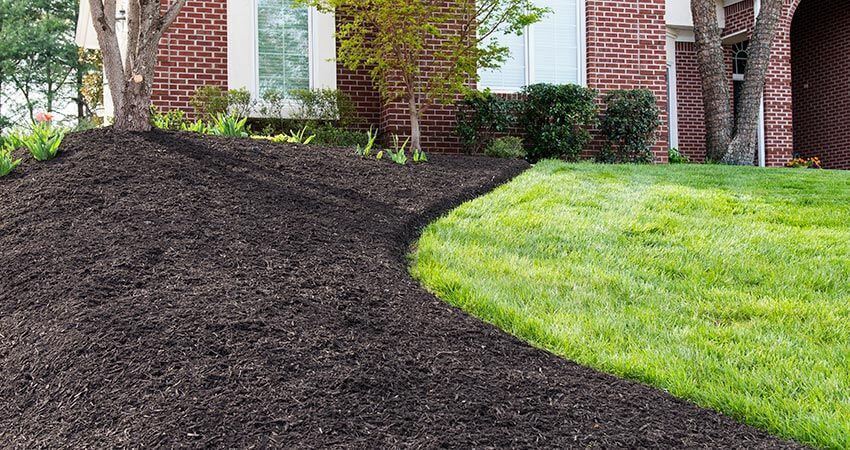Benefits of Mulch for lawn

Maintaining a healthy lawn can be a challenging task, especially if you live in an area with extreme weather conditions. The use of mulch in lawn maintenance is a popular technique that can offer numerous benefits. However, it also comes with its own set of challenges. In this blog, we will explore the benefits and challenges of using mulch in your lawn.
Benefits of using mulch in your lawn:
Water retention:
Mulch can help to retain moisture in the soil, reducing the need for frequent watering. This is especially beneficial in areas with hot and dry climates, where water conservation is crucial.
Weed control:
Mulch can help to suppress the growth of weeds in your lawn. It acts as a barrier that prevents weed seeds from germinating and growing.
Soil enrichment:
Mulch can help to enrich the soil by providing nutrients and organic matter. This can improve the overall health of your lawn and promote better growth.
Temperature regulation:
Mulch can help to regulate soil temperature, keeping it cooler in the summer and warmer in the winter. This can create a more stable environment for your lawn to grow in.
Challenges of using mulch in your lawn:
Cost:
Mulch can be expensive to purchase, especially if you have a large lawn that requires a lot of coverage.
Maintenance:
Mulch requires regular maintenance, including raking and replenishing. This can be time-consuming and labor-intensive.
Potential for pests:
Mulch can attract pests such as termites, ants, and slugs. This can be problematic if you have a wooden deck or home nearby.
Over-application:
Applying too much mulch can create a barrier that prevents water and air from reaching the soil. This can lead to root rot and other plant diseases.
Conclusion
Mulch can be a valuable tool in lawn maintenance, providing numerous benefits. However, it is important to weigh these benefits against the challenges of using mulch. Before applying mulch to your lawn, consider the cost, maintenance requirements, and potential for pests. With proper care and attention, mulch can help to create a healthy and beautiful lawn that will be the envy of your neighborhood.